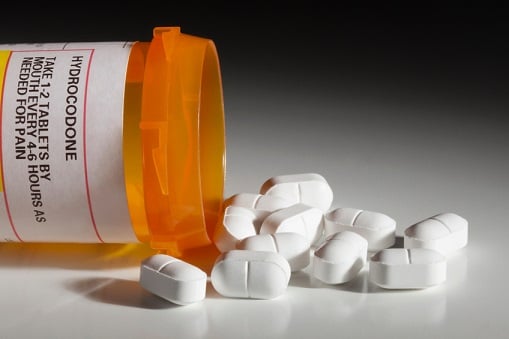A growing drug crisis might be the fuel for an alternative investment in healthcare

Crises often present opportunities for profit for sophisticated and well-positioned investors. With that in mind, investors are setting their sights on a growing epidemic: opioid addiction.
According to research firm PitchBook, US$2.9 billion spread across 45 private-equity deals was invested in opioid treatment facilities in the US last year, reported the Wall Street Journal. In 2011, investment in the sector reached only $11.4 million.
Surging demand, expanded insurance coverage, and the possibility of consolidating a highly fragmented market have made the sector attractive to private-equity firms. Clinics that provide a range of rehabilitation options, including non-profit treatment centres, have become targets for acquisition and expansion.
Mark Parrino, who heads a clinic trade association in the US, told the Journal that the balance in the industry has shifted from around 60% of clinics being non-profits to nearly 60% being for-profit today.
“There are some very good private, for-profit groups,” said Dick Steinberg, president of the non-profit WestCare Foundation, who has turned down frequent buyout inquiries. “[But] when you see these health crises happen people see a dollar as opposed to how to really help somebody.”
Private firms argue that they’re bringing much-needed capital for quality compliance, as well as expansion of services and number of facilities. Recent players and deals include the US$180-million of The Meadows in Arizona by Kohlberg & Co; a US$34-million investment by LLR Partners, HealthInvest Equity Partners, and several other firms for a stake in Sun Behavioral Health; and Flexpoint Ford’s acquisition and expansion of Summit Behavioral Health.
Statistics from the US Centers for Disease Control and Prevention (CDC) show that drug overdoses, mostly due to opioid addiction, now account for more deaths than traffic accidents. According to LA-based data provider IBISWorld, drug and alcohol-addiction clinics in the US amassed US$9.5 billion in revenue in 2016, up from US$7.5 billion in 2011.
Legislation is also providing a lift by expanding coverage for mental health in the US. This includes the Mental Health Parity and Addiction Equity Act of 2008, which required insurers that provide both mental- and physical-health benefits to cover them equally favourably. In addition, the 2010 Affordable Care Act mandated that ACA plans sold to individuals also cover mental-health treatment, and that children be allowed to remain under their parents’ insurance until age 26.
The largest source of funding for mental-health treatment in the US, including substance-abuse treatment, is the taxpayer-financed Medicaid program for low-income individuals. However, the increased private-equity investment in rehab “might not necessarily ease access issues for those on Medicaid,” said Michael Botticelli, executive director of the non-profit Grayken Center for Addiction Medicine in Boston.
Still, Botticelli acknowledged that such investment “does help overall access issues.”
For more of Wealth Professional's latest industry news, click here.
Related stories:
Trading markets short-circuited by marijuana stocks surge
Are advisors underestimating healthcare?
According to research firm PitchBook, US$2.9 billion spread across 45 private-equity deals was invested in opioid treatment facilities in the US last year, reported the Wall Street Journal. In 2011, investment in the sector reached only $11.4 million.
Surging demand, expanded insurance coverage, and the possibility of consolidating a highly fragmented market have made the sector attractive to private-equity firms. Clinics that provide a range of rehabilitation options, including non-profit treatment centres, have become targets for acquisition and expansion.
Mark Parrino, who heads a clinic trade association in the US, told the Journal that the balance in the industry has shifted from around 60% of clinics being non-profits to nearly 60% being for-profit today.
“There are some very good private, for-profit groups,” said Dick Steinberg, president of the non-profit WestCare Foundation, who has turned down frequent buyout inquiries. “[But] when you see these health crises happen people see a dollar as opposed to how to really help somebody.”
Private firms argue that they’re bringing much-needed capital for quality compliance, as well as expansion of services and number of facilities. Recent players and deals include the US$180-million of The Meadows in Arizona by Kohlberg & Co; a US$34-million investment by LLR Partners, HealthInvest Equity Partners, and several other firms for a stake in Sun Behavioral Health; and Flexpoint Ford’s acquisition and expansion of Summit Behavioral Health.
Statistics from the US Centers for Disease Control and Prevention (CDC) show that drug overdoses, mostly due to opioid addiction, now account for more deaths than traffic accidents. According to LA-based data provider IBISWorld, drug and alcohol-addiction clinics in the US amassed US$9.5 billion in revenue in 2016, up from US$7.5 billion in 2011.
Legislation is also providing a lift by expanding coverage for mental health in the US. This includes the Mental Health Parity and Addiction Equity Act of 2008, which required insurers that provide both mental- and physical-health benefits to cover them equally favourably. In addition, the 2010 Affordable Care Act mandated that ACA plans sold to individuals also cover mental-health treatment, and that children be allowed to remain under their parents’ insurance until age 26.
The largest source of funding for mental-health treatment in the US, including substance-abuse treatment, is the taxpayer-financed Medicaid program for low-income individuals. However, the increased private-equity investment in rehab “might not necessarily ease access issues for those on Medicaid,” said Michael Botticelli, executive director of the non-profit Grayken Center for Addiction Medicine in Boston.
Still, Botticelli acknowledged that such investment “does help overall access issues.”
For more of Wealth Professional's latest industry news, click here.
Related stories:
Trading markets short-circuited by marijuana stocks surge
Are advisors underestimating healthcare?



